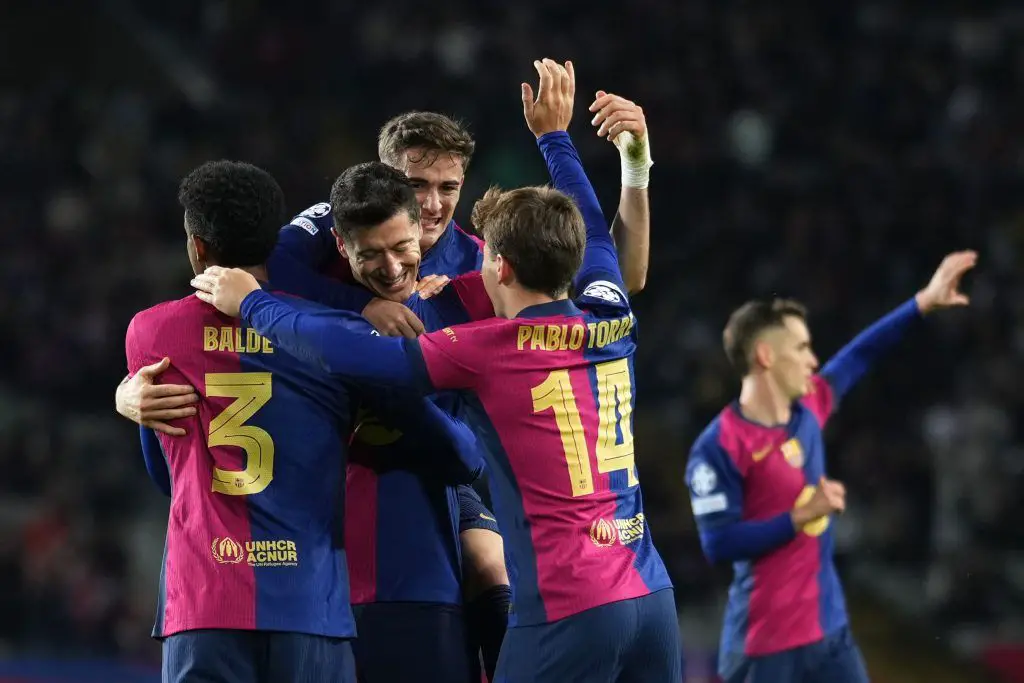The World Bank has met a target to raise $100bn in finance for the world’s poorest countries in the next three years, despite the strong US dollar and fiscal pressures hitting developed countries. However, it faces the prospect of a Trump presidency threatening future fundraising from its largest shareholder.
The International Development Association arm of the bank, the world’s biggest lender to poor countries and its biggest source of concessional climate finance, unveiled the largest fundraising in its history on Friday even as aid budgets around the globe are stagnating.
Donor governments agreed to contribute $23.7bn at a pledge meeting in South Korea this week, only a slight increase on $23.5bn that they pledged the last time the IDA raised money, in 2021.
The bank will be able to leverage this further to $100bn, compared to $93bn in 2021, by borrowing more from markets, getting money back from recipients, and squeezing more headroom from its top-tier credit rating.
The US remained the biggest donor as the outgoing Biden administration pledged $4bn, up from $3.5bn last time, and $3bn under Donald Trump’s first presidency.
But the US contribution needs legislative approval, setting up a potential battle in the new Congress next year over the funding if it is not passed in this year’s lame-duck session.
The $100bn goal was possible “because of donor generosity but also the work we have done to better optimise our balance sheet, take on more risk, and increase our leverage capacity,” Ajay Banga, the bank’s chief, said.
The World Bank has to top up the IDA every three years because a high proportion of its support comes in the form of grants or long-term loans with very low rates, so it is less able than other development banks to use repayments to rebuild capital.
Banga, a former Mastercard chief executive, has been on a mission to simplify the bank’s operations and increase its firepower since he took the helm last year.
Demands on the bank are growing at a time when many big lenders to poor nations in recent years, from China to bond markets, have turned off the taps and switched to being repaid.
This year’s replenishment goal falls short of a call by African leaders to increase the target to $120bn.
More than half of those nations eligible for the IDA’s support are either already in debt distress or at risk of entering it as interest payments have surged to the highest levels versus income such as export earnings in decades, the bank said in a separate report this week.
“These facts imply a metastasising solvency crisis that continues to be misdiagnosed as a liquidity problem in many of the poorest countries,” Indermit Gill, the World Bank’s chief economist, said.
Countries such as Kenya and Bangladesh are relying on IDA cash in the years ahead as they navigate tough IMF bailouts and a drought of foreign finance while trying to climb the economic development ladder. “For these nations, IDA’s concessional financing is often the only viable source of investment in job-creating sectors,” Banga said.
It is also one of few development funds that can tout many former aid recipients who returned as donors as they grew richer. They include South Korea, Chile, Bosnia and Herzegovina, Turkey and China.
Despite this, and what are on paper double-digit percentage increases in pledges from many countries this year, a large number of governments have struggled to contribute more in dollar terms as the greenback has climbed against currencies such as the euro and yen.
Political turmoil and budget pressures have also affected big European donors this year, such as the UK, France and Germany.
The UK pledged about £2bn, or $2.5bn, up 40 per cent in sterling terms versus the last fundraising for the IDA in 2021, but down on a 2019 pledge of £3bn, then worth about $3.8bn.
Eleven new countries donated to the IDA in this round, increasing its donor base by about a quarter in a “welcome show of confidence in multilateralism” said Amy Dodd, fellow at E3G, a climate change think-tank.
Climate Capital
Where climate change meets business, markets and politics. Explore the FT’s coverage here.
Are you curious about the FT’s environmental sustainability commitments? Find out more about our science-based targets here











/cdn.vox-cdn.com/uploads/chorus_asset/file/24100829/226345_Nest_Doorbell_wired_JTuphy_0006.jpg)